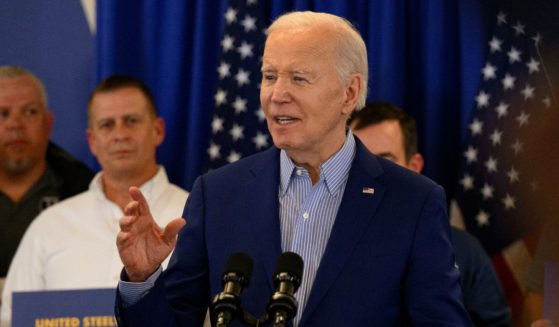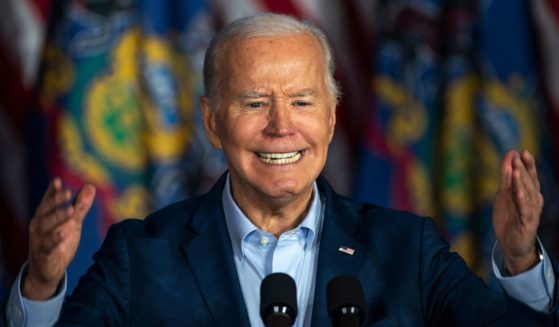Southwest CEO 'not happy' about Max crisis but backs Boeing
DALLAS (AP) — Southwest Airlines executives acknowledge they are upset with Boeing over the grounding of its 737 Max jetliner, a move that has caused the airline to cancel thousands of flights.
But they are still standing by the embattled aircraft maker and deny interest in buying planes from its rival, Airbus.
Southwest has 34 Max jets — more than any other carrier — and has run up extra costs and lost revenue since they were grounded last month after two deadly crashes. It is not clear when the planes will fly again.
“We are not happy with this situation. Who would be?” Southwest Chairman and CEO Gary Kelly told reporters Thursday.
The airline’s president, Tom Nealon, said he expects some customers will avoid buying tickets on Max flights, at least for a time.
Nealon confidently predicted that the airline will find other passengers for those flights.
“We will fill them up, just like we always do,” he said.
The executives spoke to analysts and reporters after Southwest released quarterly results that showed that higher costs due partly to the Max grounding are more than offsetting rising ticket sales. Its first quarter profit fell 16% to $387 million.
Southwest said that it canceled more than 10,000 flights in the quarter because of the Max, a labor dispute with its mechanics, and winter storms.
The Max currently accounts for less than 5% of Southwest flights, but that would roughly double if, as planned, it takes delivery of 41 more of them later this year.
Southwest is checking its customer surveys and consulting outside experts as it crafts a marketing plan to make customers feel comfortable getting on the jets. Executives said it was too early to give details about their thinking, but the approach seems as well mapped as a 737 flight plan.
“It’s a great airplane, Boeing is a great company, we’re looking forward to obviously working with the (Federal Aviation Administration) to get it ungrounded,” Kelly said.
Boeing leaders said this week that they are close to finishing work on updates to the anti-stall software that has been implicated in accidents in Indonesia and Ethiopia that killed 346 people. Preliminary reports from investigators indicate that in each case the software was activated by faulty data from a sensor and pushed the plane’s nose down, and pilots were unable to counteract the force of the plane.
Boeing is making the anti-stall automation less powerful, and it is designing a training course to explain the system to pilots. The company and an FAA board of technical experts believe the training can be done on computers instead of in flight simulators, which would take longer.
Jon Weaks, president of the Southwest pilots’ union, said his group wants to see Boeing’s proposal before deciding whether to demand simulator training. Southwest believes its pilots are already trained how to respond to situations that occurred before the crashes.
Analysts expect Boeing to compensate airlines that have lost use of their grounded Max planes, with estimates ranging up to $2 billion industrywide.
Kelly said details about contract arrangements between his airline and Boeing “are things that we will take up with Boeing privately.”
Airline executives discounted reports about a Southwest delegation’s trip to Europe, where they looked at the new Airbus A220, which is only slightly smaller than the Boeing 737. Chief Operating Officer Mike Van de Ven said there was nothing unusual about the visit.
“We’re just always out there trying to discuss and evaluate economics and opportunities in airplanes,” he said. “It’s kind of like going to the new-car show — you just like all the different products that you see out there.”
Kelly said the trip was planned a long time ago, and Southwest was not trying to send a message to Boeing.
“We have no plan to do anything other than grow our fleet with the Max,” the CEO said, adding that he couldn’t rule out other types of planes forever.
In the financial report, Dallas-based Southwest said first-quarter profit was reduced $150 million by a combination of canceled flights, the December-January partial government shutdown, and soft demand for leisure travel.
The company said adjusted earnings in the first quarter worked out to 70 cents per share, 9 cents better than the forecast of analysts surveyed by Zacks Investment Research.
Revenue rose 4% to $5.15 billion, slightly better than analysts’ expectations, but operating costs soared 7%, led by higher labor expenses.
The airline said the Max grounding will contribute significantly to expected higher costs in the second quarter.
Helane Becker, an airline analyst for Cowen Research, said she was concerned by Southwest’s forecast of higher costs per seat in the second quarter. She said management must explain how it will improve its cost structure once the Boeing Max comes back into the fleet.
Southwest Airlines Co. shares ended Thursday up 42 cents at $53.35.
___
David Koenig can be reached at http://twitter.com/airlinewriter
The Western Journal has not reviewed this Associated Press story prior to publication. Therefore, it may contain editorial bias or may in some other way not meet our normal editorial standards. It is provided to our readers as a service from The Western Journal.
Truth and Accuracy
We are committed to truth and accuracy in all of our journalism. Read our editorial standards.












